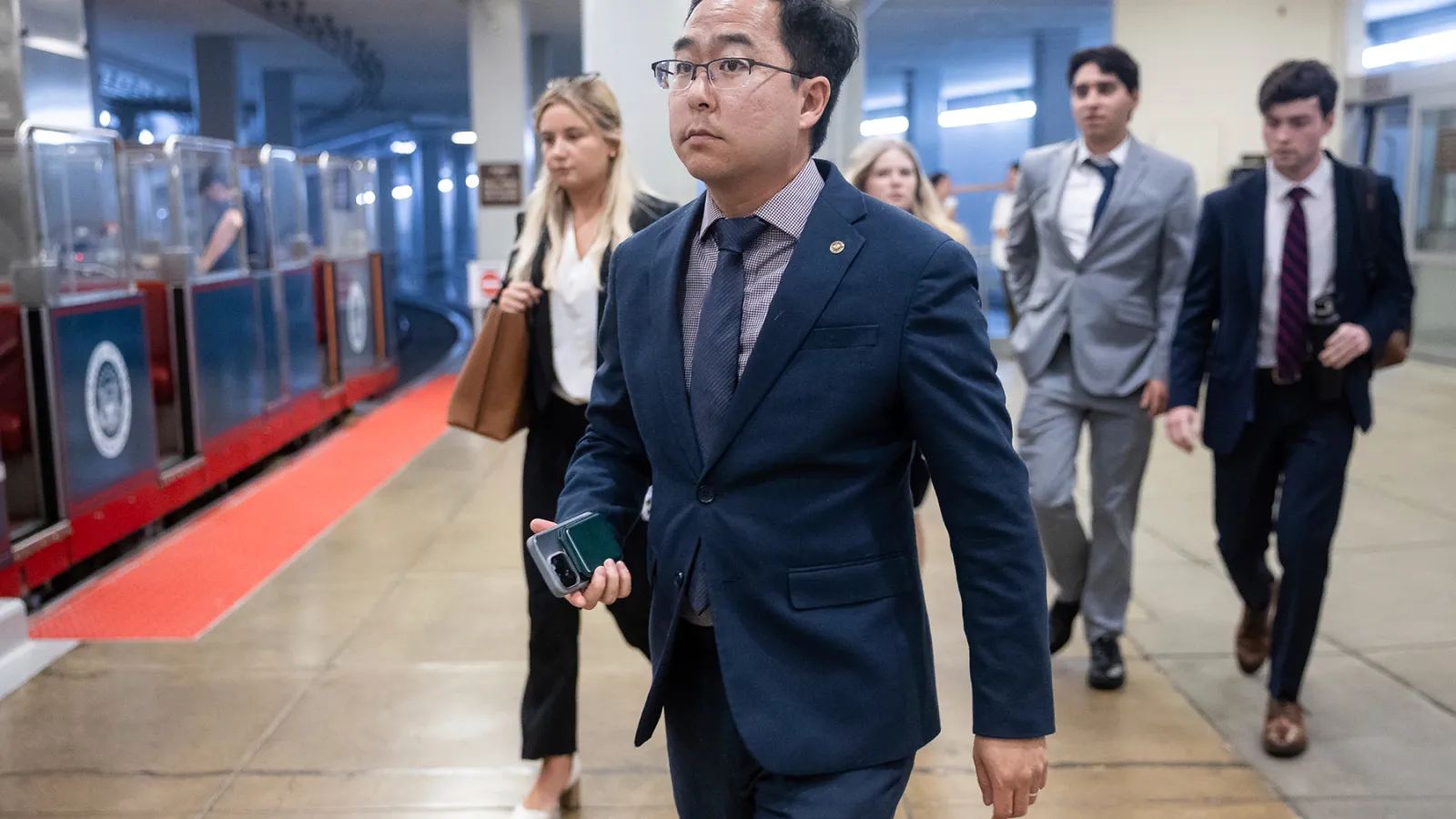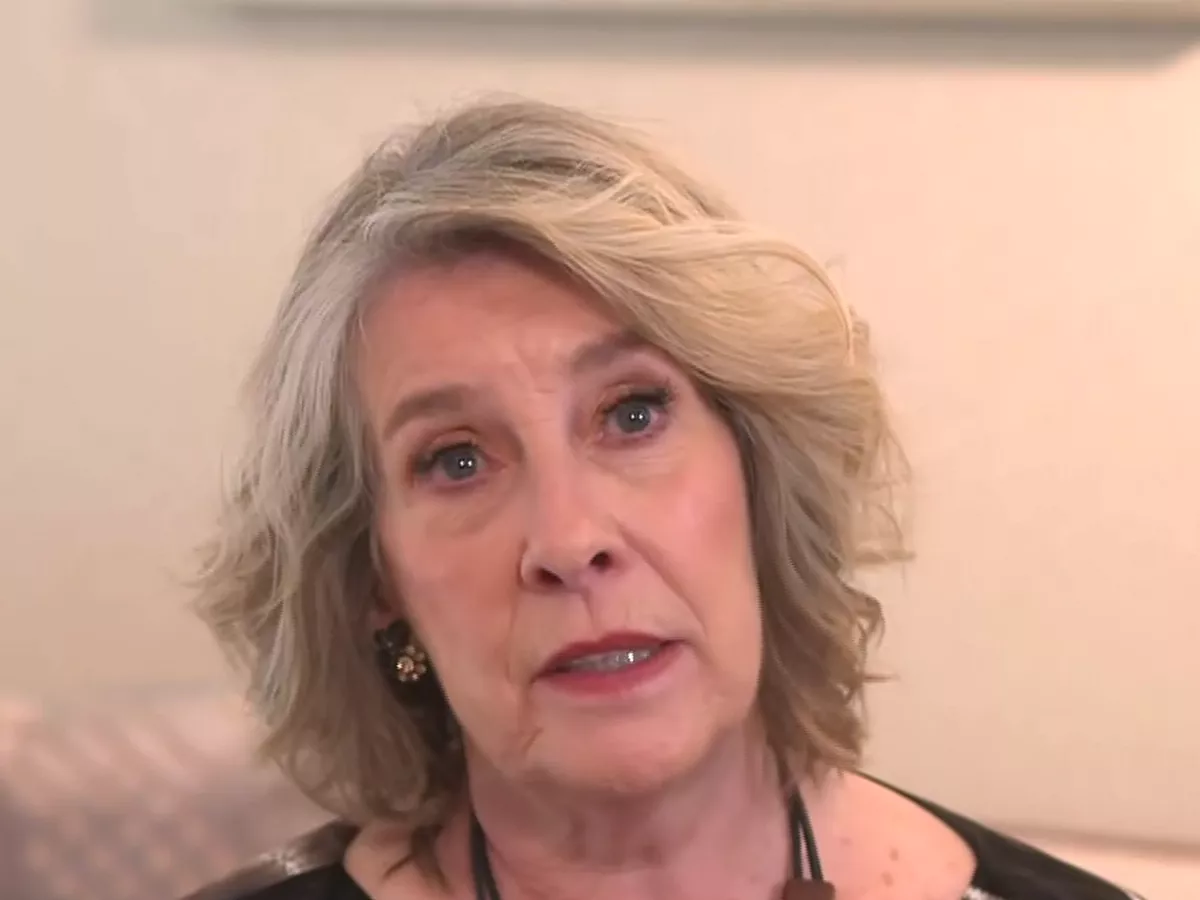
President Donald Trump and his family are building a multinational cryptocurrency, real estate, and licensing empire on the back of his presidency, catapulting his estimated worth by billions.
The net worths of individual members of Congress are estimated to range between the tens of thousands of dollars and more than half a billion. The justices of the Supreme Court are estimated to hold a collective net worth of over $64 million.
Sen. Andy Kim (D-N.J.) is introducing legislation to try and combat the culture of political profiteering that has become endemic to virtually every corner of the federal government — and supercharged under the second Trump administration. “If you have egotistical, narcissistic, corrupt people in government, you will have an egotistical, narcissistic, and corrupt government,” Kim says. “But if you have people who are dedicated to public service, people who are honest, you can have an altogether different kind of government. I want the American people to see the choice.”
On Thursday, Kim unveiled “The Restoring Trust in Public Servants Act,” which would prevent America’s most powerful elected and appointed officials across all three branches of government from enriching themselves off their offices. The bill would prevent members of Congress (as well as their families and employees), the president, vice president, Senate-confirmed political appointees, and judicial officers — including members of the Supreme Court — from trading stocks and participating in a host of financial activities that could present conflicts of interest.
During the second Trump administration, profiteering off one’s elected office is no longer viewed as an impropriety, but the standard of conduct set by the president himself. Sources close to Trump told Rolling Stone in May that the president has privately complained that it was “stupid” not to cash in harder during his first term, and is making up for lost time. Already this term we’ve seen the Trump family build out a blossoming crypto empire, launch all manner of licensing deals, and announce new international real estate investments.
Editor’s picks
The new bill is similar to anti-corruption legislation Kim introduced during his time in the House, but the new measure expands the category of covered assets to include crypto and other “digital assets,” as well as the scope of public officials subject to the ban.
In addition, the act would prevent members of Congress from accepting outside earned income and from serving on the board of an association or corporation, with limited exceptions for nonprofit work. The congressional lobbying ban would be expanded to cover the entirety of a former lawmaker’s life.
“I know people in Congress where if you’re a corporation, you can’t get a meeting with that person unless you donate from your corporate PAC to them. I find that to be wholly unacceptable,” Kim tells Rolling Stone.
“We should just have a single standard,” Kim says. “Everyone’s a public servant. Everyone swears the oath in exactly the same way, everyone’s trying to protect and defend the Constitution by virtue of our jobs and our oath. We should also just have a single standard when it comes to ethics, when it comes to our behavior and our role here.”
Kim was elected to the Senate to fill the seat vacated by disgraced former Sen. Bob Menendez — who is currently serving an 11-year prison sentence after being convicted on federal corruption charges. Among his peers, Kim has perhaps the best vantage point of the chaos and distrust that the financial abuse conducted by those in power can sow among a community.
Related Content
Menendez was caught with literal bars of gold in his closet, but the investigations into his foreign dealings revealed a history of leveraging his position in the Senate to secure bribes and other boons. While Menendez ran afoul of federal law, his actions are only a few degrees removed from the open graft being normalized in the White House. As the president openly flaunts his business dealings abroad and at home — even hosting a pay-for-access dinner at his Mar-a-Lago resort for investors in his cryptocurrency schemes — it’s clear that existing legislation and enforcement mechanisms are grossly insufficient.
“It shows just how limited our system of checks and balances really is,” Kim says. “So much of our checks and balances as a country really rested on norms of behavior. When you’re dealing with someone like the president who just doesn’t abide by that, you see how the system really falls short to be able to address that.”
The lack of established, universal, and widely enforceable rules restricting public officials ability to profit off investments and other speculative activities both during their time in office and after has long been an issue — see the stock indexes tracking the stock trading activities of House Speaker Emerita Nancy Pelosi (D-Calif.) and her husband. Past attempts to enact trading bans have stalled, been amended into effective uselessness, or devolved into performative political bickering aimed at individual members. In the second Trump era, billionaires are seemingly able to directly purchase favor and influence at the White House, and graft is the name of the game.
In Kim’s view, the heart of public service has been lost in the dysfunction.
“I am trying to counter that kind of broader attack and assault on public service that I feel is going to be damaging for generations,” he says. “I’m simultaneously trying to encourage people in public service while trying to clean up and restore trust in what it means to be a public.”
Trending Stories
Kim recounts a former boss at the State Department, where he worked in his early career, who told him that “you don’t have good government unless you have good people working in government.”
“I love this job so much, I could do this for free,” he adds. “We only need 535 people in Congress out of a country of 340 million people. Surely we can find 435 in the House and 100 in the Senate that are willing to say, ‘I am so honored to do this job, I am happy to divest and assure the American people that I’m doing this in the right way.’”



